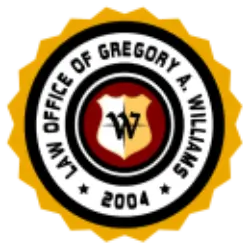
Under Washington State law, what is the purpose of the local government tort-claim filing statute? Here’s my point of view.
(IMPORTANT: This article is for informational purposes only and is based upon my point of view. Due to the rapidly changing nature of the law, we make no warranty or guarantee concerning the accuracy or reliability of the content in this article. No content on this site, regardless of date, should ever be used as a substitute for direct legal advice from your attorney. Please review our Disclaimer|Terms of Use|Privacy Policy before proceeding.)
LOCAL GOVERNMENT TORT-CLAIM FILING STATUTE
A tort is a civil wrong, other than breach of contract, for which remedies may be obtained. Prospective plaintiffs intending to pursue tort claims against a Washington State local-governmental entity are required to conform to certain statutory requirements. See RCW 4.96. The relevant law states as follows:
RCW 4.96.010
Tortious conduct of local governmental entities—Liability for damages.
(1) All local governmental entities, whether acting in a governmental or proprietary capacity, shall be liable for damages arising out of their tortious conduct, or the tortious conduct of their past or present officers, employees, or volunteers while performing or in good faith purporting to perform their official duties, to the same extent as if they were a private person or corporation.
Filing a claim for damages within the time allowed by law shall be a condition precedent to the commencement of any action claiming damages.
The laws specifying the content for such claims shall be liberally construed so that substantial compliance therewith will be deemed satisfactory.
(2) Unless the context clearly requires otherwise, for the purposes of this chapter, “local governmental entity” means a county, city, town, special district, municipal corporation as defined in RCW 39.50.010, quasi-municipal corporation, any joint municipal utility services authority, any entity created by public agencies under RCW 39.34.030, or public hospital.
(3) For the purposes of this chapter, “volunteer” is defined according to RCW 51.12.035.
RCW 4.96.010 (paragraph formatting and emphasis added).
THE 60-DAY REQUIREMENT
Thus, a “local government entity is liable for damages arising from its tortious conduct to the same extent as if it were a private person or corporation.” Renner v. City of Marysville, 230 P.3d 569, 571, 168 Wash.2d 540 (Wash. 2010) (citing RCW 4.96.010(1)). “However, prospective plaintiffs must file a tort claim with the local government at least 60 days prior to filing a lawsuit.” Id. The relevant law is as follows:
RCW 4.96.020
Tortious conduct of local governmental entities and their agents—Claims—Presentment and filing—Contents.
…
(4) No action subject to the claim filing requirements of this section shall be commenced against any local governmental entity, or against any local governmental entity’s officers, employees, or volunteers, acting in such capacity, for damages arising out of tortious conduct until sixty calendar days have elapsed after the claim has first been presented to the agent of the governing body thereof.
The applicable period of limitations within which an action must be commenced shall be tolled during the sixty calendar day period.
For the purposes of the applicable period of limitations, an action commenced within five court days after the sixty calendar day period has elapsed is deemed to have been presented on the first day after the sixty calendar day period elapsed.
RCW 4.96.020(4) (paragraph formatting and emphasis added).
(IMPORTANT: There are additional filing requirements (e.g., access to standard forms, content, delivery, etc.) that will not be discussed in this article for the sake of brevity. Failure to conform to these additional requirements could result in severe consequences during litigation. The reader is strongly encouraged to both seek legal counsel and refer to RCW 4.96 for more information.)
THE POLICIES
CLAIM FILING STATUTE
“The claim filing statute is intended to provide local governments with notice of potential tort claims, the identity of the claimant, and general information about the claim.” Renner, 230 P.3d at 571. “The legislature illustrated the general nature of this purpose, stating that ‘[t]he laws specifying the content for such claims shall be liberally construed so that substantial compliance therewith will be deemed satisfactory.'” Id. (citing RCW 4.96.010(1)) (alteration in original). “Under this directive, exact specificity is not required; the claimant simply must provide enough information to put the government on notice of the claim and its contents.” Id.
TORT CLAIM
“The purpose of this claim is ‘to allow government entities time to investigate, evaluate, and settle claims’ before they are sued.” Id (citing Medina v. Pub. Util. Dist. No. 1, 147 Wash.2d 303, 310, 53 P.3d 993 (2002)). “The claim filing statute provides further that it is to be liberally construed such that substantial compliance is satisfactory.” Id; see also RCW 4.96.020(5).
LEARN MORE
If you would like to learn more, then consider contacting an experienced attorney to discuss your case. This article is not offered as legal advice and will not establish an attorney-client relationship with Law Office of Gregory A. Williams, or the author of this article; please refer to our Disclaimer | Terms of Use | Privacy Policy for more information.

